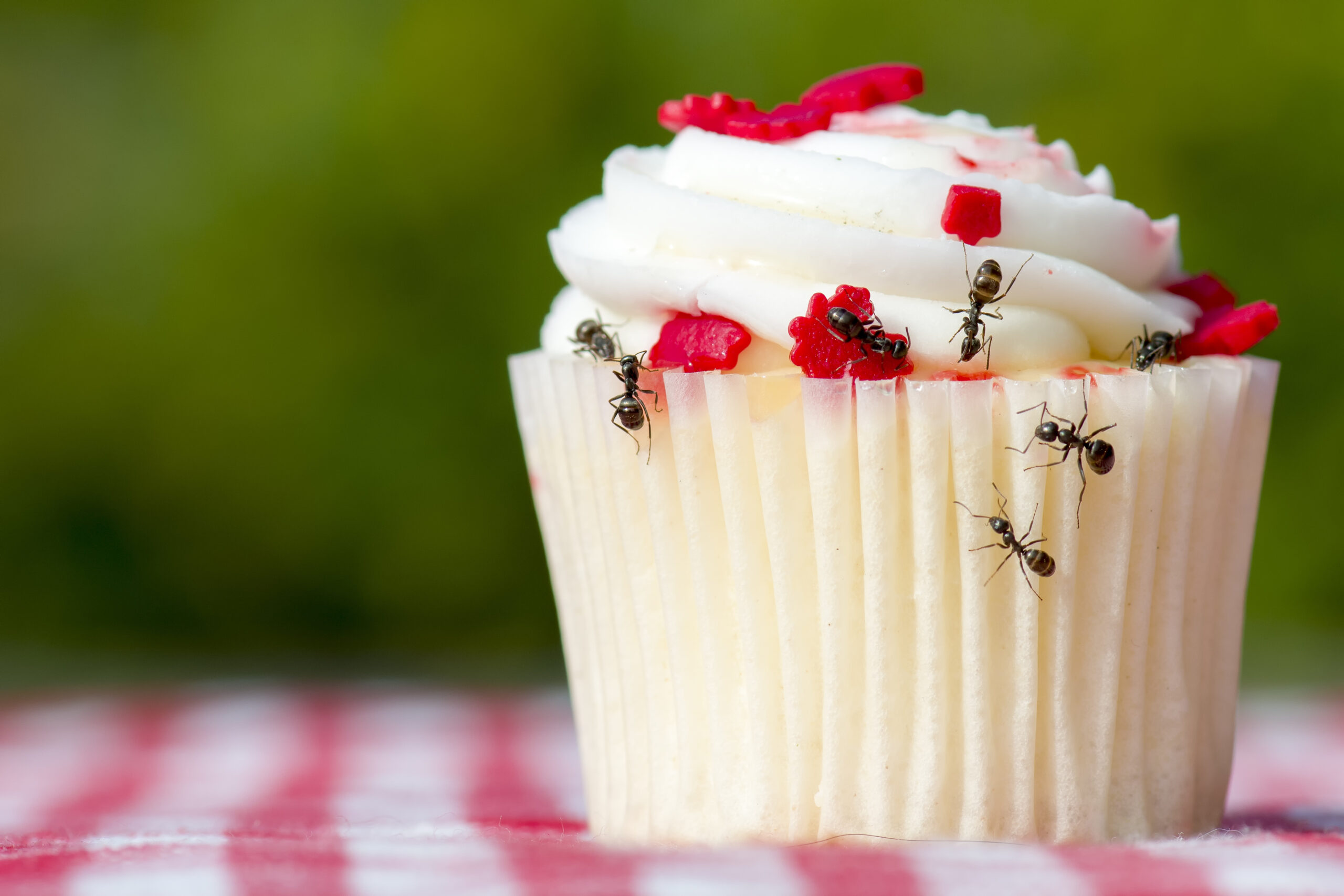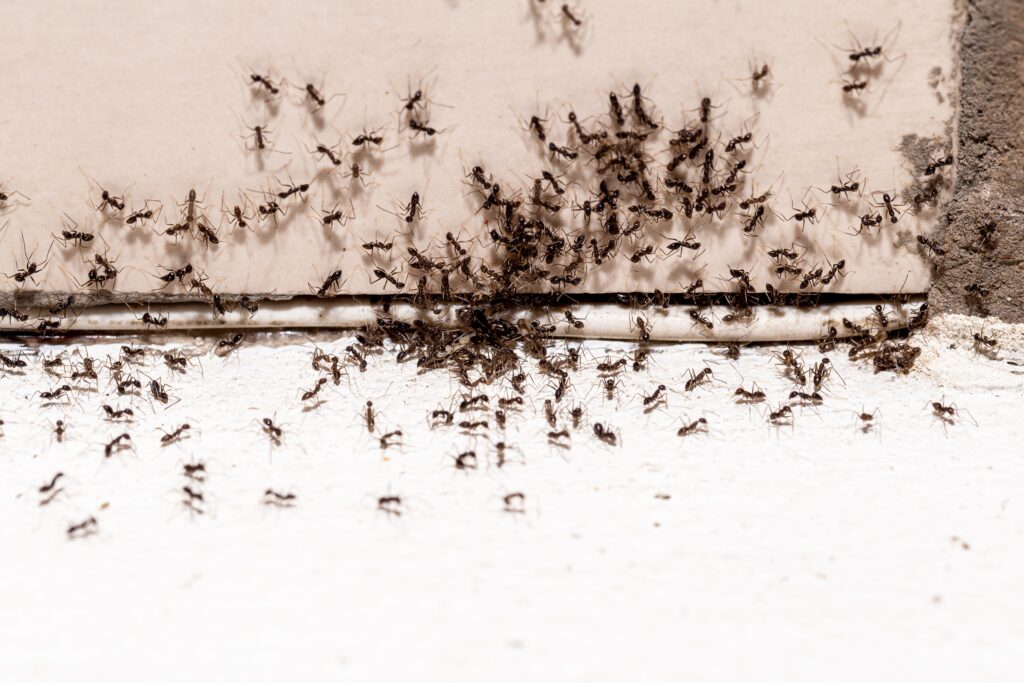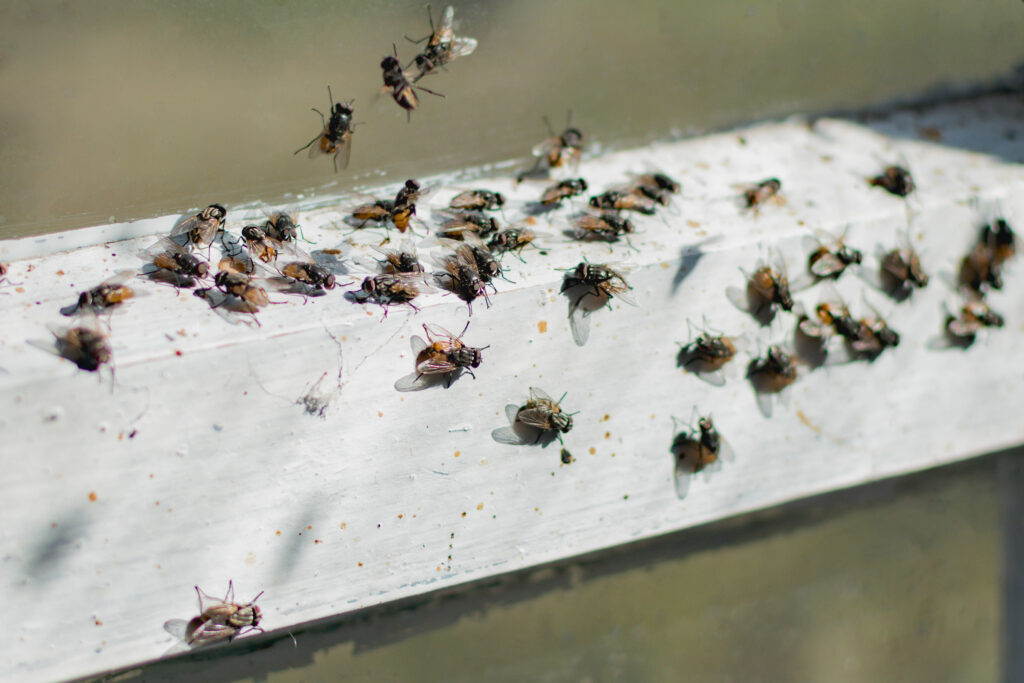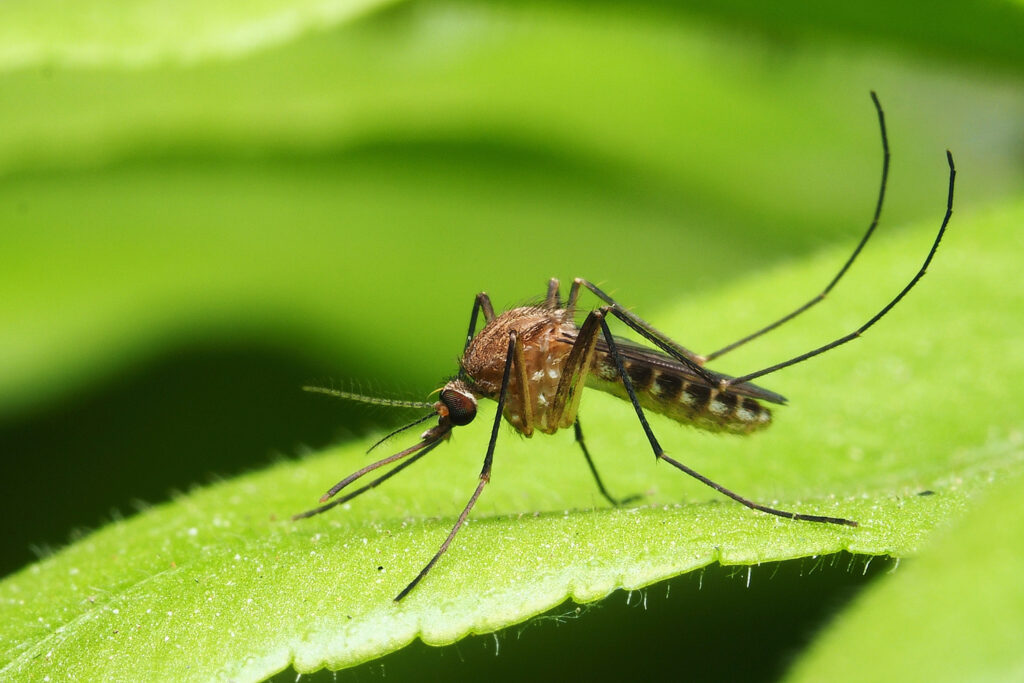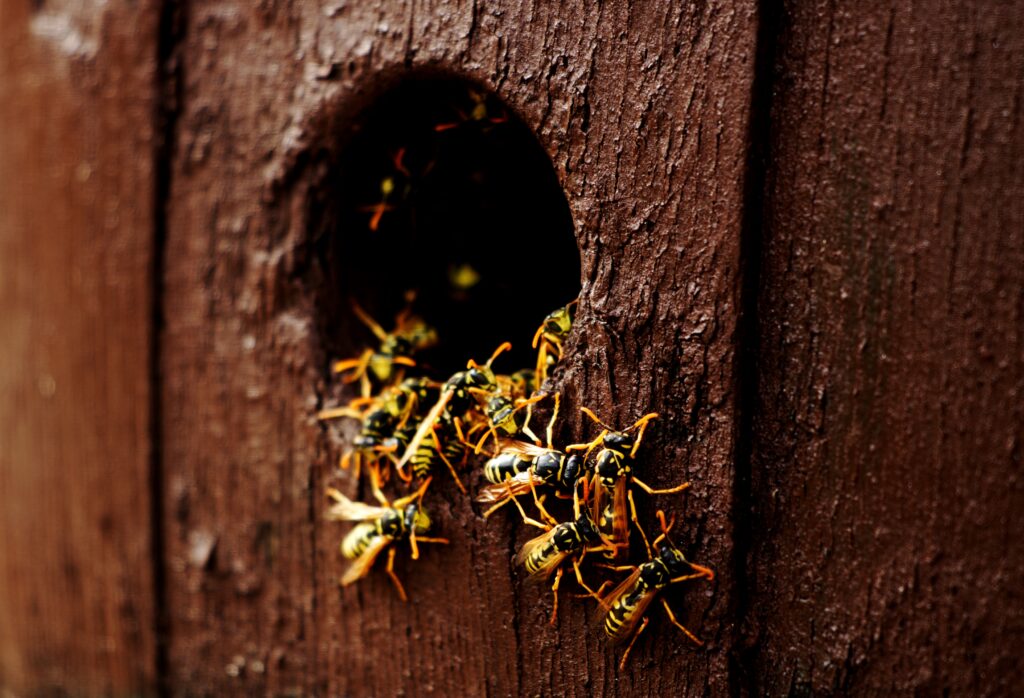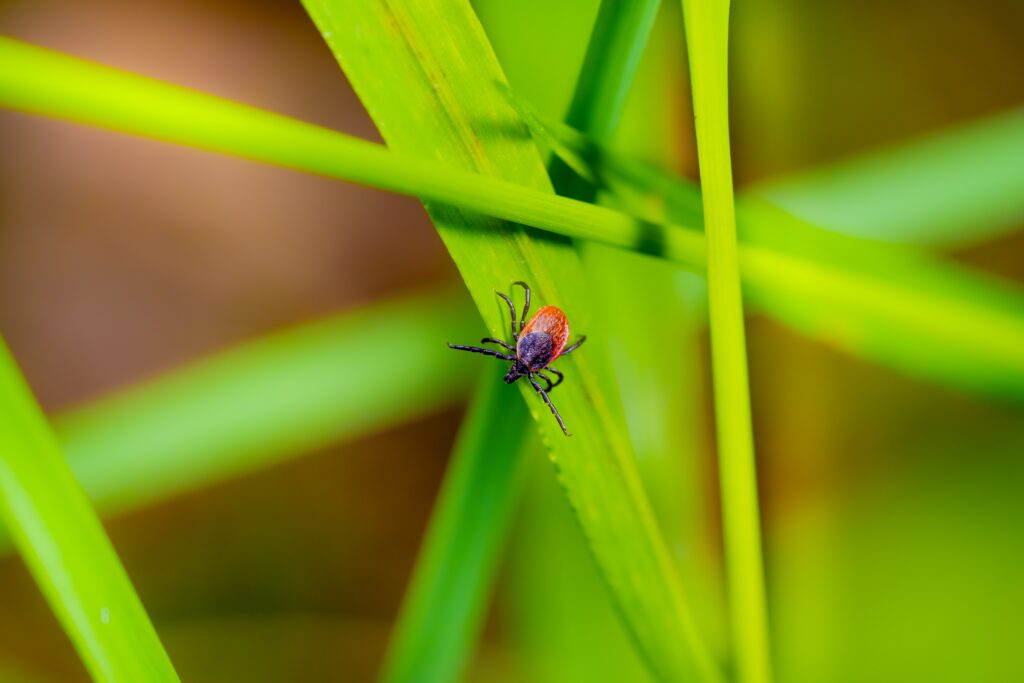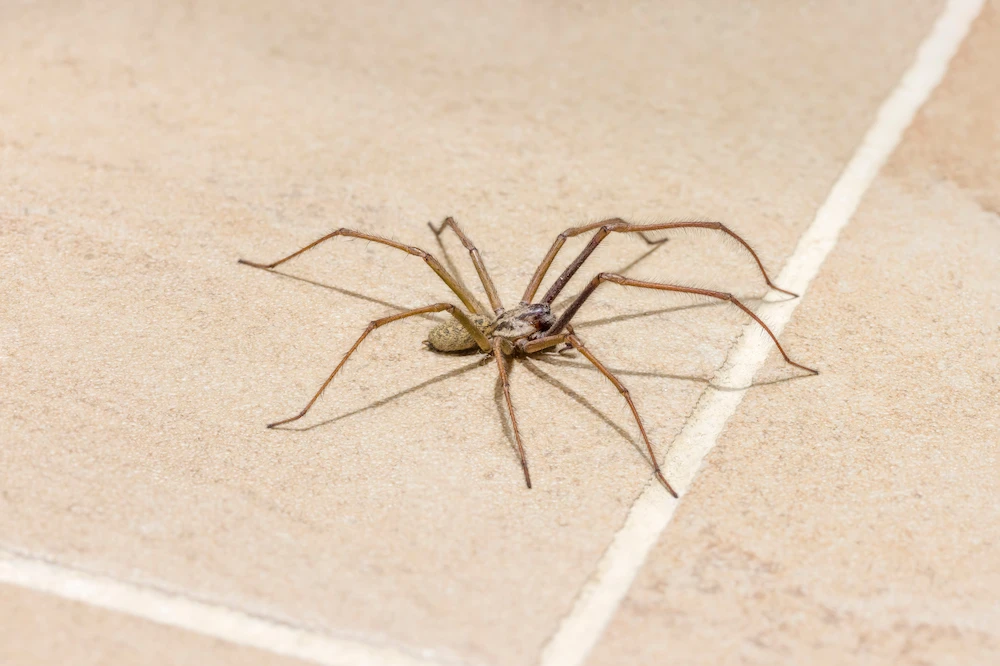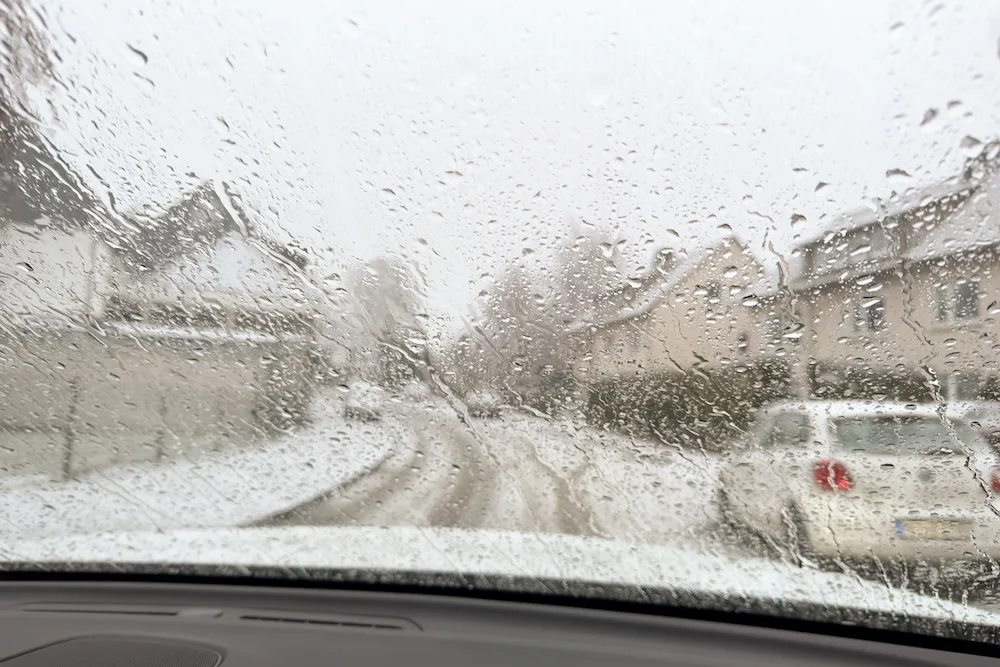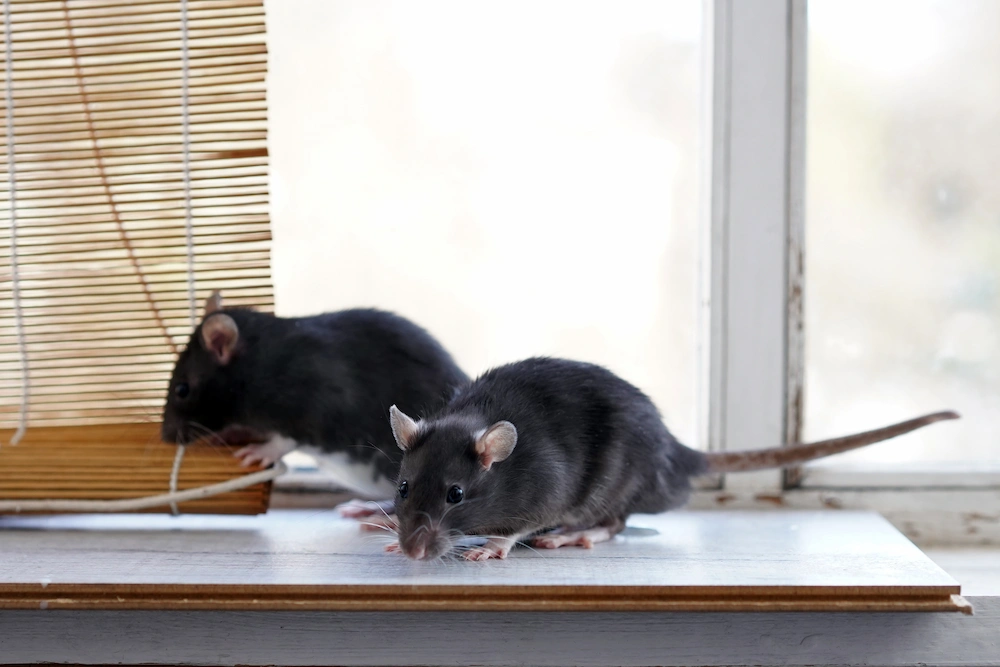Summer is here, and that means every bug known to man is emerging again just to spite us (that’s how it feels, at least). Humans also spend more time outside in the summer since there’s so many more activities to choose from, whether you live near a body of water or not. The more time we spend in nature, the more opportunities we have to see creepy-crawlies in all of their glory. The sunny days and warm nights make it possible for tiny critters to survive in areas they can’t during the winter. Let’s take a look at 5 of the worst summer pests in the Pacific Northwest and how you can prevent them from ruining your summer.
Ants
Ant infestations usually peak in July because they’re desperately trying to escape the heat, but they are a major pest all summer long. Worker ants search for safe food sources that can sustain their massive colonies, which leads them directly into our homes. Any open food items on the counter or in the pantry will be exploited by invasive ants. Baked goods, cereals, sweets, meats, and sugary drinks are their favorites.
Each ant species causes problems, but odorous house ants are a problem pest this time of year. They’re in pursuit of food and water sources, so a house is the ideal place for these ants. There are two main ways to prevent ants from invading your home. One is to properly store opened food (and dry pet food) in airtight containers with good lids. The other is to trim back plants and tree branches at least a foot from the house, as these provide easy highways for ants when the greenery is overgrown.
Flies
If you’ve ever tried to enjoy a nice picnic or barbecue outside, we’re guessing that you had some uninvited guests (and we’re not talking about your nosy neighbors). Flies use their keen sense of smell to find food that not only sustains them, but also acts as an egg-laying site for their offspring. They usually choose the discarded items we wouldn’t willingly touch, including garbage, rotten fruit, moldy leftovers, and animal feces (gross!).
Since they walk all over these disgusting items to get a taste, flies contaminate everything they touch afterwards. In other words, you don’t want a fly stepping foot on your dinner plate since it can spread all kinds of diseases! It’s important to treat a fly problem ASAP because they lay up to 150 eggs at once. Keep all garbage contained in the trash cans and close the lids to the big outdoor cans when you’re not using them. Also, clean up all food and drink spills with an antibacterial wipe or spray to remove any lingering residue.
Mosquitoes
Sunburns and mosquito bites are frequent markings on our poor skin every summer, but mosquitoes are (a little) easier to avoid. Mosquitoes love heat and humidity, becoming more energetic when the temperature is higher. They hide in overgrown plants during the height off the day, then emerge at dusk and dawn to feed. Their population peaks in June and continues growing strong throughout the rest of the summer. All they need to reproduce and lay their eggs is a bit of fresh water. This can be as large as a lake or as small as a puddle.
Female mosquitoes need our blood to produce their eggs, so eliminating standing water in your yard is the easiest way to break the cycle of mosquito reproduction. Since they spread diseases to humans (Zika virus, malaria, West Nile virus, yellow fever, etc.) and pets (heartworms), it’s essential to eliminate mosquitoes. Make sure your plants are watered the proper amount, and dump out any water from your yard decorations after a summer rainstorm.
Stinging Insects
Unfortunately, stinging pests only get more active as the weather warms up. August seems to be the peak of their activity, but you’ll see them buzzing around all summer long. Stinging insects start building their nests in early summer, then gradually expand them as their colony grows with each batch of eggs laid by their queens. Most species prefer to keep their nests elevated, so they build their nests on eaves, trees, and fences. Some species, like honeybees, reuse their hives each year. Others, like hornets and yellow jackets, make new nests every year.
Every stinging pest is defensive of its home, but some are even worse than others. Yellow jackets are one of the most aggressive types, which is scary since their nests are in the ground and accessible to dogs and cats. The abundant plant life of the Pacific Northwest means there’s a large stinging pest population, so the best way to solve a problem is to catch it beforehand! If you see any nests being built around your home, contact professional pest control services ASAP to remove it.
Ticks
The main reason why ticks are such a common problem every summer is simply because we’re all spending more time outside! These bloodsuckers hide in tall grass and thick brush, waiting for a mammal to walk close enough for them to crawl onto their new host. Ticks can’t fly or jump, so the only way they can access our blood is if we unknowingly stay near them long enough to allow the tick to hop on board.
Humans can get ticks anywhere out in nature, but our furry friends are even more susceptible because their fur gives ticks more opportunities for hiding spots. Dogs and cats can also get ticks by being out in nature, including the backyard. Check the fur of your pet often throughout the summer, paying close attention to the skin on their necks, near their tails, and between their toes. When you’re preparing for an outdoor activity (fishing, hiking, etc.), spray your exposed skin with a bug repellant that clearly states it works against ticks.
Take Your Season Back From Summer Pests!
Your summer doesn’t have to be ruled by the endless number of bugs that emerge every time the weather heats up. At Pointe Pest Control, our dedicated technicians solve each pest issue with the utmost care and attention. We first inspect your property for all evidence of pest activity, then use our findings to create a treatment plan customized to fit your pest control needs. We don’t waste time with ineffective treatments or unproductive methods, as our top priority is your satisfaction with our services. Contact us today to learn more about why Pointe is the key to your pest-free summer!
Citations
Are you prepared for the worst summer pests?. (n.d.). Pest-End. Retrieved May 30, 2024, from https://www.pestendinc.com/blog/are-you-prepared-for-the-worst-summer-pests
Five of the worst summer pests. (2020, August 14). Wildout Animal & Pest Removal. Retrieved May 30, 2024, from https://wildremoval.com/five-of-the-worst-summer-pests/
How to prevent & control flies this summer. (n.d.). Lookout Pest Control. Retrieved May 30, 2024, from https://anypest.com/blog/how-to-prevent-control-flies-this-summer/
Pacific Northwest pests your pet should avoid. (2020, August 11). Pest Lock. Retrieved May 30, 2024, from https://www.pestlock.com/pacific-northwest-pests-your-pet-should-avoid/


